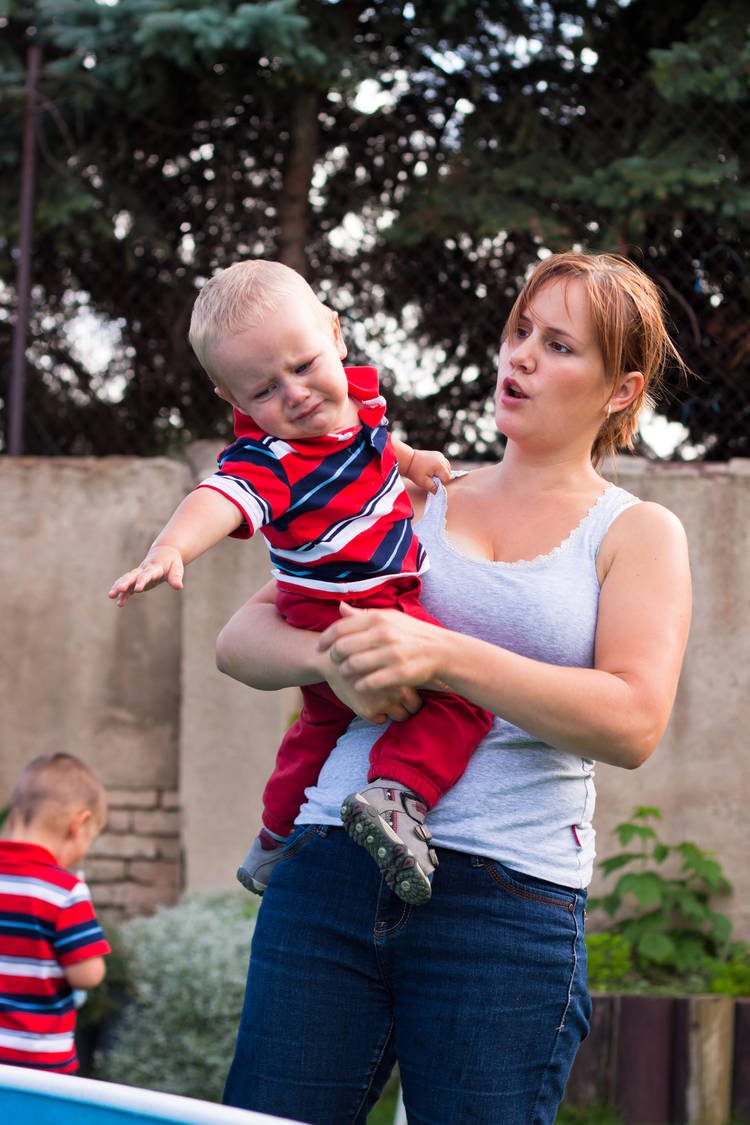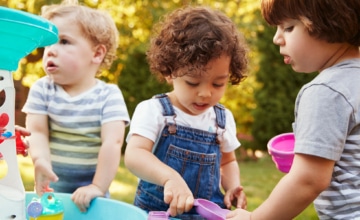The truth is, sometimes our children do things that are genuinely aggravating. But since we’re the grown-ups in this relationship, it’s our job to manage that frustration and find a loving response.
“What do you do with the mad that you feel,” sang Mister Rogers, “when you feel so mad you could bite? When the whole wide world seems oh-so-wrong, and nothing you do seems very right?” Of course, Fred Rogers was talking to and about preschoolers, but he could very well have been speaking for the rest of us. Feeling a wide range of emotions is part of being human, and that includes being angry. Even if you’re a parent. Especially if you’re a parent.
The truth is, sometimes our children do things that are genuinely aggravating. But since we’re the grown-ups in this relationship, it’s our job to manage that frustration and find a loving response.
So—your toddler is insisting on (screaming for) sandals in the middle of winter. Or begging for more screen time after you’ve already said no five times. And so on.
Here’s what might help:
Check your own stress level. Often our own stress influences how we react in the moment. It’s normal to feel more irritated by the demand for the “train PJs, not the striped ones” after you’ve already dealt with a stressful day. But as a parent, learning to manage that irritation is key to building a strong, trusting connection with our little ones. Check in with yourself and try something (a drink of water, a deep breath, etc.) to reduce your own stress level before you respond to your child.
Know what your child can—and can’t—yet do based on their age and stage. For example, no two-year-old has the skills to share toys without a lot of adult support. A three-year-old can remember a rule but doesn’t have the self-control needed to follow it. Understanding what your child is capable of helps you respond with compassion and teaching, instead of anger.
Think about what parts of the day are hardest for you—and your child. See if you can organize the day to make those moments easier. If your child often has a meltdown on the drive home from child care because they’re hungry and tired, try offering a healthy snack in the car to keep the “hangries” away.
Consider the situation from your child’s point of view. What are they trying to tell you with this behavior? What needs are they trying to get met? Imagining how your child may be feeling in a challenging moment won’t stop the behavior, but it can give you the space you need to respond with compassion. This doesn’t mean that parents never set limits, but it means we set limits with kindness and after considering what our child is experiencing.
Finally, it’s ok to relax into being a “good enough” parent. There’s a lot of pressure—from family, friends, social media—to be the picture-perfect family all the time. But what’s real is that missteps are a normal part of raising children. When things go wrong—say, you spoke to your child more sharply than you meant to—you have a chance to try again. Your misstep matters less than the way you re-connect with your little one. Over time, children learn to trust you as a source of love, understanding, and forgiveness.





